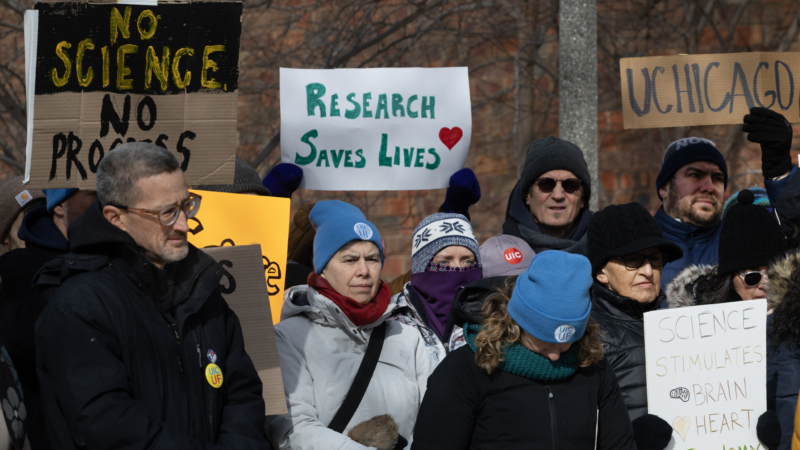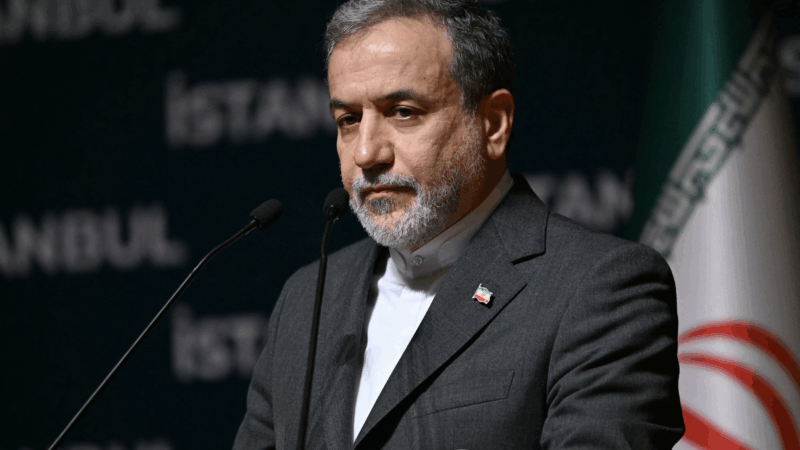NIH partially lifts freeze on funding process for medical research
The Trump administration has partially lifted a hold that had frozen ability of the National Institutes of Health to review new grant applications for research into diseases ranging from heart disease and COVID to Alzheimer’s and allergies.
The freeze occurred because the Trump administration had blocked the NIH from posting any new notices in the Federal Register, which is required before many federal meetings can be held. The stoppage forced the agency to cancel meetings to review thousands of grant applications.
The meeting freeze had stalled about 16,000 grant applications vying for around $1.5 billion in NIH funding, according to one person who is familiar with the grant-making process who did not want to be identified because of fear of retribution.
But on Wednesday the NIH released a statement saying the agency could now “begin sending notices incrementally to the Office of the Federal Register to advertise meetings of scientific review groups/study sections and begin their resumption.” The agency planned to submit Federal Register Notices for the next 50 meetings, according to the statement. That will allow for the first phase of grant application reviews to start to resume.
But Federal Register notices for other types of meetings remain “on hold,” which means the later stages of grant review remain frozen.
With an annual budget of nearly $48 billion, the NIH is the largest public funder of biomedical research in the world. The freeze sent shock waves through universities, hospitals, medical schools and other institutions that depend on NIH funding.
All requests for NIH grants go through an intensive review process. That process keeps NIH funding flowing to more than 300,000 researchers at more than 2,500 universities, medical schools and other institutions.
Soon after Trump was inaugurated, the federal government froze all grants, including NIH grants. But that freeze was temporarily blocked by a federal judge.
Some researchers suspected the NIH’s Federal Register freeze was an attempt to circumvent that ruling. But others disputed dispute that interpretation.
The NIH is among federal agencies still reeling from staff cuts. The NIH has lost about 1,200 people so far. At the same time, the Trump administration is trying to cap the rate at which the NIH pays for the indirect costs of doing medical research at 15%, which is far lower than the rate that has been paid at many institutions. Scientists say it could cripple medical research. A federal judge in Boston is deciding whether the cap can go forward.
Many scientists fear the moves are just the beginning of what could eventually lead to a restructuring of the NIH. Robert F. Kennedy Jr., who now leads HHS, which oversees the NIH, has said it needs major reforms.
In addition, Dr. Jay Bhattacharya, the Stanford University researcher President Trump has nominated to be director of the NIH, has criticized the agency. Some Republican members of Congress and conservative think tanks have proposed major changes to the NIH, including sending most of the agency’s $48 billion directly to states through block grants.
Satellites show damage to Iran’s nuclear program, but experts say it’s not destroyed
Satellite imagery shows trucks at two key sites the day before the American strikes, suggesting uranium could have been moved.
Trump administration defends Iranian strikes as some lawmakers question its legality
After the U.S. took military action against three nuclear sites in Iran, reaction across the political spectrum was swift with many Democrats decrying the president's "unilateral" strikes.
As Israel recovers the bodies of three more hostages, how many are still in Gaza?
Israel said Sunday that it has recovered the bodies of three more hostages taken in Hamas' Oct. 7 attack that ignited the ongoing 20-month war in the Gaza Strip.
U.S. strikes on Iranian nuclear sites show no sign of widespread environmental impact
So far, any chemical and radioactive contamination seems confined to the nuclear sites hit by U.S. bombs
Iran’s top officials condemn U.S. strikes and assert their right to self-defense
Foreign Minister Abbas Araghchi called the American operation an "outrageous, grave and unprecedented violation" of the United Nations Charter and international law.
World reacts to U.S. strikes on Iran with alarm, caution — and some praise
As the world reacted to news of U.S. strikes on Iran's nuclear facilities, international officials largely responded with alarm and calls for restraint.






